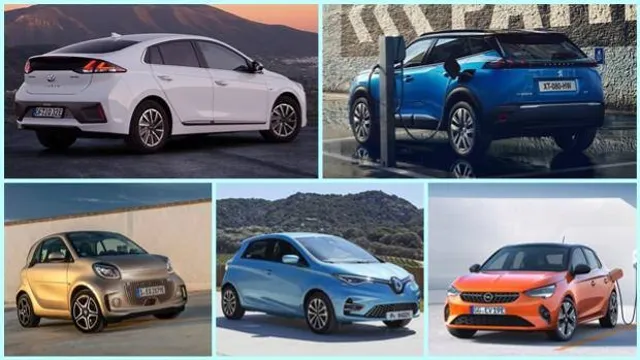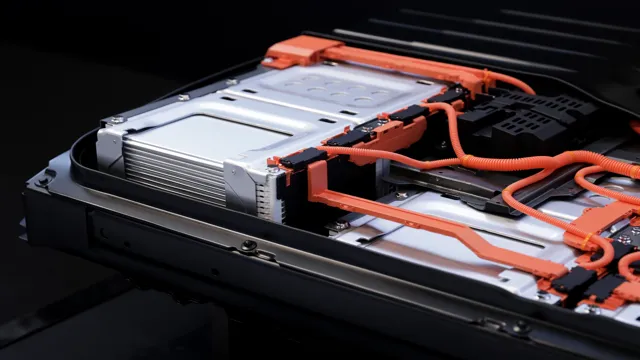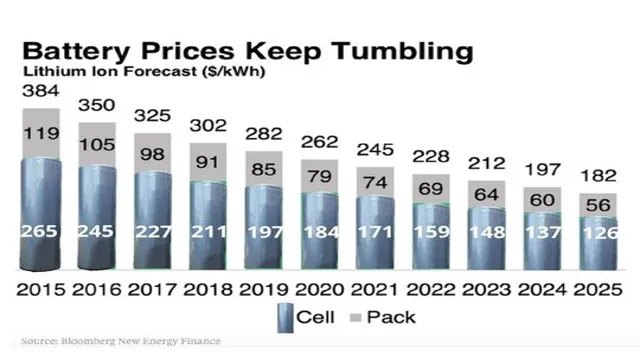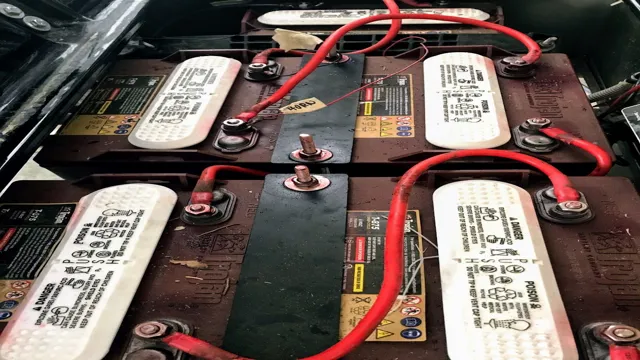Powering the Future: The Evolution of Batteries Used by Electric Cars
Electric cars are becoming increasingly popular, and with this rise in popularity comes a need for better and more efficient batteries. Batteries for electric cars are a critical component, as they power the car and allow it to operate without burning fossil fuels. However, not all batteries are created equal, and choosing the right one for your electric car can be a daunting task.
In this blog, we will explore the different types of batteries available for electric cars and their pros and cons, providing you with the information you need to make an informed decision. From lithium-ion to nickel-metal hydride, we’ll cover it all, so buckle up and let’s dive in!
Why Are Batteries Important?
The batteries used by electric cars are crucial components that allow these eco-friendly vehicles to run smoothly. Unlike traditional cars that rely on gasoline or diesel fuel, electric cars require high-capacity, rechargeable batteries to power their engines. These batteries use chemical reactions to store and release energy, providing the electric motor with the necessary power to move the car.
Battery technology has come a long way in recent years, with advances in materials and design leading to longer-lasting, more efficient batteries that can be charged faster and hold more power. The widespread adoption of electric cars and other electric vehicles is driving further innovation in battery technology, as manufacturers compete to produce better batteries that offer greater performance and reduce costs. As electric cars become increasingly popular, the importance of batteries cannot be overstated, as they are key to reducing reliance on fossil fuels and achieving a more sustainable future for our planet.
Environmental Benefits
Batteries are crucial to modern life and play an essential role in our daily activities. They are not only important for powering our electronic devices, but also for enhancing our energy efficiency and reducing the impact on the environment. With the increasing demand for sustainable energy, batteries have become a key component in many renewable energy systems, such as solar and wind power systems, by storing excess energy and providing backup power during periods of low wind or sun.
The use of batteries can help to reduce our dependence on traditional fossil fuels and mitigate greenhouse gas emissions, which are primary contributors to global warming. Furthermore, batteries can reduce the amount of waste generated by electronic devices as they are rechargeable and can be reused, reducing the environmental impact of traditional disposable batteries. Overall, batteries represent a crucial aspect of our transition towards a more sustainable future, where renewable energy, efficient energy use, and reduced environmental impact are key priorities.
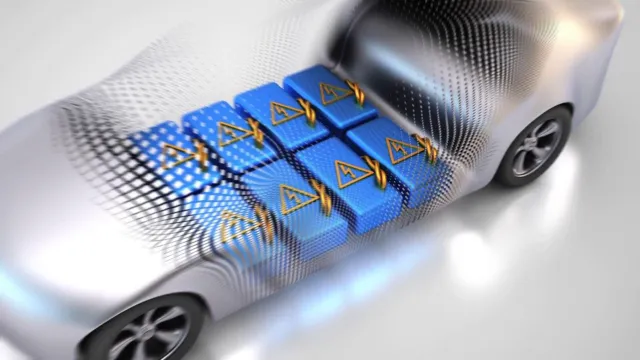
Efficiency Benefits
Efficiency Benefits of Batteries – Why Are They Important? Batteries have become essential in our daily lives because they offer several benefits that make them more efficient than their alternatives. Firstly, they are portable, thus enabling us to use electronic devices while on the move without the need to connect them to a mains power source. Secondly, they are rechargeable, which leads to cost savings and less environmental pollution compared to using disposable batteries.
Thirdly, they offer backup power during blackouts and emergencies, ensuring uninterrupted electricity supply to critical appliances such as medical equipment and security systems. Moreover, batteries can store excess electricity generated from renewable energy sources like solar and wind, enabling households and industries to reduce their reliance on fossil fuels. Overall, batteries are essential for enhancing energy efficiency and ensuring sustainability in our daily lives.
Types of Electric Car Batteries
When it comes to electric cars, one of the most important components is the battery. There are a few different types of batteries that can be used, each with its pros and cons. One common type is the lithium-ion battery, which is known for its efficiency and ability to hold a lot of energy in a small space.
Another option is the nickel-metal hydride battery, which is often used in hybrid cars and is known for being more durable than lithium-ion batteries. Lead-acid batteries are also an option, although they’re less efficient and tend to have a shorter lifespan. Ultimately, the type of battery used will depend on the car model and the manufacturer’s preferences.
But no matter what type of battery is used, electric cars offer a cleaner, more eco-friendly way to travel, with fewer emissions and a reduced impact on the environment.
Lithium-Ion Batteries
Lithium-ion batteries have quickly become the go-to for electric cars due to their high energy density and long lifespan. However, there are different types of lithium-ion batteries used in electric vehicles. One common type is the lithium-cobalt oxide battery, which has been in use since the early 1990s.
It is known for its high energy density, but it comes with the downside of being less durable and having a shorter lifespan. Another type is the lithium iron phosphate battery, which has a longer lifespan, is more durable, and handles high temperatures better, but it has a lower energy density. Finally, there is the lithium-nickel-manganese-cobalt-oxide battery, which is a popular choice due to its balanced combination of energy density and lifespan.
Each of these battery types has its own advantages and disadvantages, and carmakers will choose the ones that best suit their needs.
Nickel-Metal Hydride Batteries
When it comes to electric car batteries, there are several types available, including the nickel-metal hydride battery. This type of battery has been around for quite some time and has been used in hybrid cars, but it is not as common in pure electric vehicles. However, it still has its advantages, including a longer lifespan and lower cost compared to other types of batteries.
Additionally, they are more environmentally friendly than their lead-acid counterparts. Nickel-metal hydride batteries are also less sensitive to high temperatures, making them a good option for hot climates. However, they do have some downsides, such as being heavier and having less energy density compared to newer battery technologies like lithium-ion.
Overall, the choice of battery type will depend on various factors, including performance needs, cost, and environmental impact.
Lead-Acid Batteries
Lead-acid batteries have been used in electric vehicles for many years and are still a popular choice today due to their cost-effectiveness and reliability. These batteries consist of lead and sulfuric acid and are known for their ability to deliver high bursts of power, which makes them a great option for starting engines. There are two types of lead-acid batteries: flooded and sealed.
Flooded lead-acid batteries require maintenance, such as adding water and checking the battery acid levels, while sealed batteries are maintenance-free. However, sealed lead-acid batteries are more expensive than flooded ones. In terms of lifespan, these batteries typically last around three to five years.
While they are not the most energy-efficient option, lead-acid batteries are still widely used in electric cars due to their affordability and proven track record.
How Electric Car Batteries Work
Batteries used by electric cars are a crucial component that powers the vehicle. Electric car batteries are typically made up of several smaller cells, which use a chemical reaction to generate electricity. These cells are made up of electrodes and an electrolyte, which allow for the movement of ions between them.
When a current is produced, the electrons flow from one electrode to the other, generating power in the process. The size of the battery and the number of cells determine the overall capacity and range of the car. The most popular type of battery used by electric cars is lithium-ion, due to its high energy density and long lifespan.
However, it’s worth noting that battery technology is constantly advancing, and we can expect to see more efficient and advanced batteries used in electric cars in the future.
Battery Management System
Battery Management System Electric car batteries work by using a battery management system (BMS) to optimize their performance and prolong their lifespan. The BMS helps ensure that each of the battery cells is working at its maximum potential, by monitoring the state of charge, temperature, and voltage in real-time. By doing this, the BMS can balance out any imbalances between the cells and prevent overcharging or undercharging.
Over time, this can help extend the battery’s lifespan, improving the overall efficiency of the car. It’s like having a personal trainer for your car’s battery, keeping it in top shape for the long haul. With the BMS, electric cars can reduce their environmental footprint, lower fuel costs, and provide a smoother, more efficient ride.
Charging and Discharging
Electric car batteries work on the principle of charging and discharging to power the vehicle. When the battery is charged, it stores electrical energy, which is then used to power the car’s electric motor. While the car is being driven, the battery discharges and the energy is converted into mechanical energy that powers the wheels.
The charging process involves using an external charging source, such as a charging station or a home charging unit, to recharge the battery’s energy storage. The discharge process occurs when the driver uses power from the battery to move the car. This continuous cycle of charging and discharging the battery allows electric cars to operate without the use of gasoline or other fossil fuels.
The battery technology used in electric cars is constantly evolving, with newer models being developed to improve battery efficiency, range, and charging times. As more electric cars become available, the demand for better battery technology will continue to grow, driving innovation in the field.
Future of Electric Car Batteries
The future of electric car batteries is bright with the advancements in technology. The batteries used by electric cars are being improved constantly to increase their efficiency and power. Researchers are looking into developing solid-state batteries that offer higher energy density and faster charging times than the lithium-ion batteries used in most electric vehicles today.
These batteries are expected to hit the market in the next few years and could revolutionize the industry. In addition, as renewable energy sources like wind and solar become more prevalent, batteries used by electric cars will increasingly be charged by renewable energy, making the entire transportation system more environmentally friendly. The batteries used by electric cars are already impressive, but the future promises even greater innovations that will make them an even more viable alternative to gas-powered vehicles.
Conclusion
In conclusion, batteries are the beating heart of electric cars – powering them with clean, green energy and driving the shift toward a more sustainable future. While there are challenges, such as their cost, range and charging infrastructure, the benefits of electric cars make them a compelling choice for anyone looking to reduce their carbon footprint. From Tesla to Nissan, BMW to Chevrolet, automakers around the world are racing to develop better battery technology, which means that we can look forward to even more exciting developments in the world of electric cars.
So, whether you’re a fan of the Tesla Model S or the Chevy Bolt, one thing is for sure – with batteries leading the charge, the future of driving is electric!”
FAQs
What type of batteries are used in electric cars?
Electric cars typically use lithium-ion batteries.
How long do electric car batteries last?
The lifespan of an electric car battery varies based on usage and storage conditions, but typically lasts between 8-10 years or 100,000-200,000 miles.
Can you replace the batteries in an electric car?
Yes, the batteries in an electric car can be replaced, although it can be a costly process.
Are there any alternatives to lithium-ion batteries in electric cars?
Yes, some electric car manufacturers are exploring the use of alternative battery technologies such as solid-state batteries or hydrogen fuel cells.



